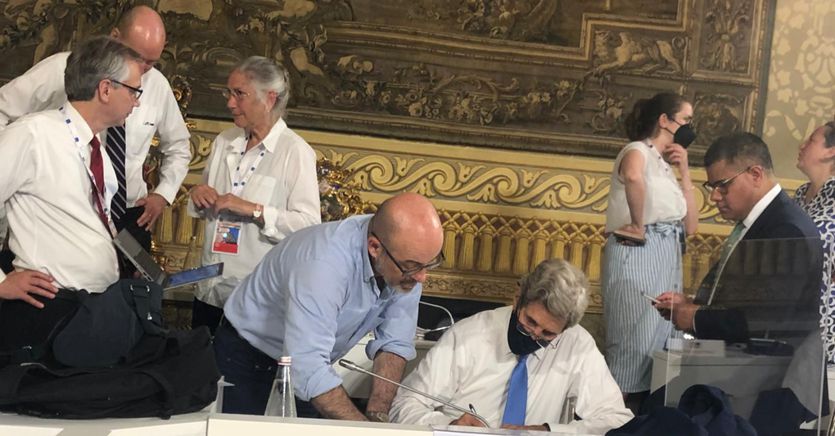Climate agreement reached at the G20 in Naples. After hours of negotiations, with a rift that threatened to blow up the agreement, the countries approved the final communiqué of the summit. The main opposition had come from India, together with China the country most hostile to the targets to combat climate change hoped for by the Italian presidency. Only at the end Beijing gave in and gave the ok to the rock that had blocked the negotiations, the inclusion of a reference to carbon neutrality. Now the communicated final will reveal by what deadline the goal has been set, provided that one has been decided. The drafts and rumors circulated during the day had sown doubts on the substance of the document, especially on the front of the financial commitments and the constraints that should engage the richest economies on the planet on the climate front.
The axis between Kerry and Italy
The go-ahead to the Climate Communiqué comes the day after the green light for the Environment, in both cases under the direction of the Italian presidency. The text on the Environment had already come out of hours of negotiations and with several filings with respect to the original objectives. Climate change has gone through an even more troubled process, with mediations underway even after the final announcement of the agreement. The US climate envoy John Kerry and the Minister of Ecological Transition, Roberto Cingolani, worked together on the draft of the negotiation which then ended up on the table of ministers on the afternoon of 23 July. The text tried to mediate between the various ministers present at the Naples summit, to secure a shared statement by the afternoon.
Loading…
At mid-day the countries were split on at least “two, three points”, sources present in Naples reported, confirming the climate of tension on the day dedicated to the combination of energy and climate. The two most slippery arguments for the club of the 20 richest economies, divided internally on strategies to combat climate change and cut emissions.
Yesterday the ministers had snatched an agreement on the topic of the Environment from the last, with a communicated final which sets 10 “guidelines” in view of COP26 in Glasgow. Today it seems more complicated to arrive at a synthesis, given the differences that separate the countries from the G7 from giants like India and China.
Cingolani personally meets the delegations
The negotiations had come to a standstill in the late morning, with negotiations stalled on one of the most ambitious targets of the two days: the formalization of a carbon neutrality goal by 2050. The G20, as had already emerged on the eve, is paying for a fracture between countries more or less “ambitious” on their climate policies, with the push of the G7 for an acceleration of measures, and the opposite brake from economies such as China, India, Saudi Arabia, Brazil, Russia. It was India above all that held the point until the end of the negotiations, proving to be an even more difficult interlocutor than Beijing.
